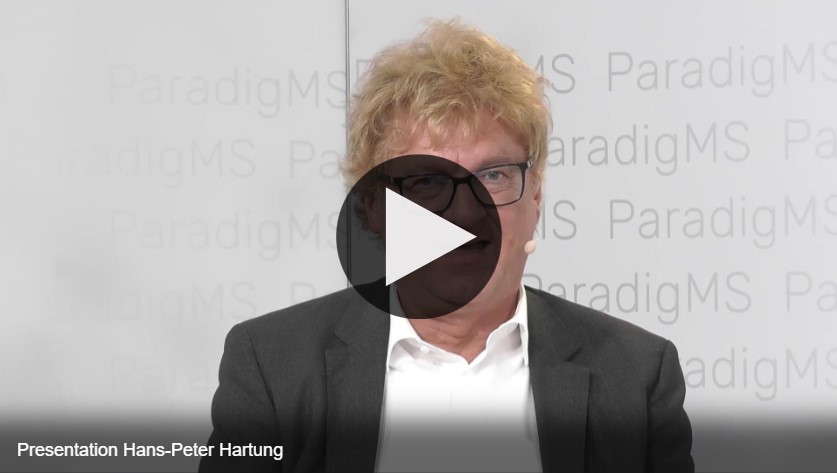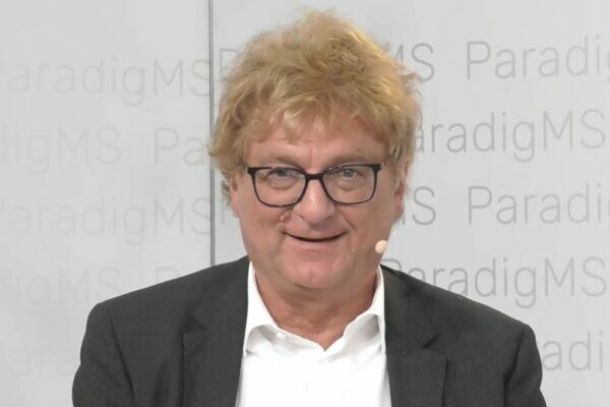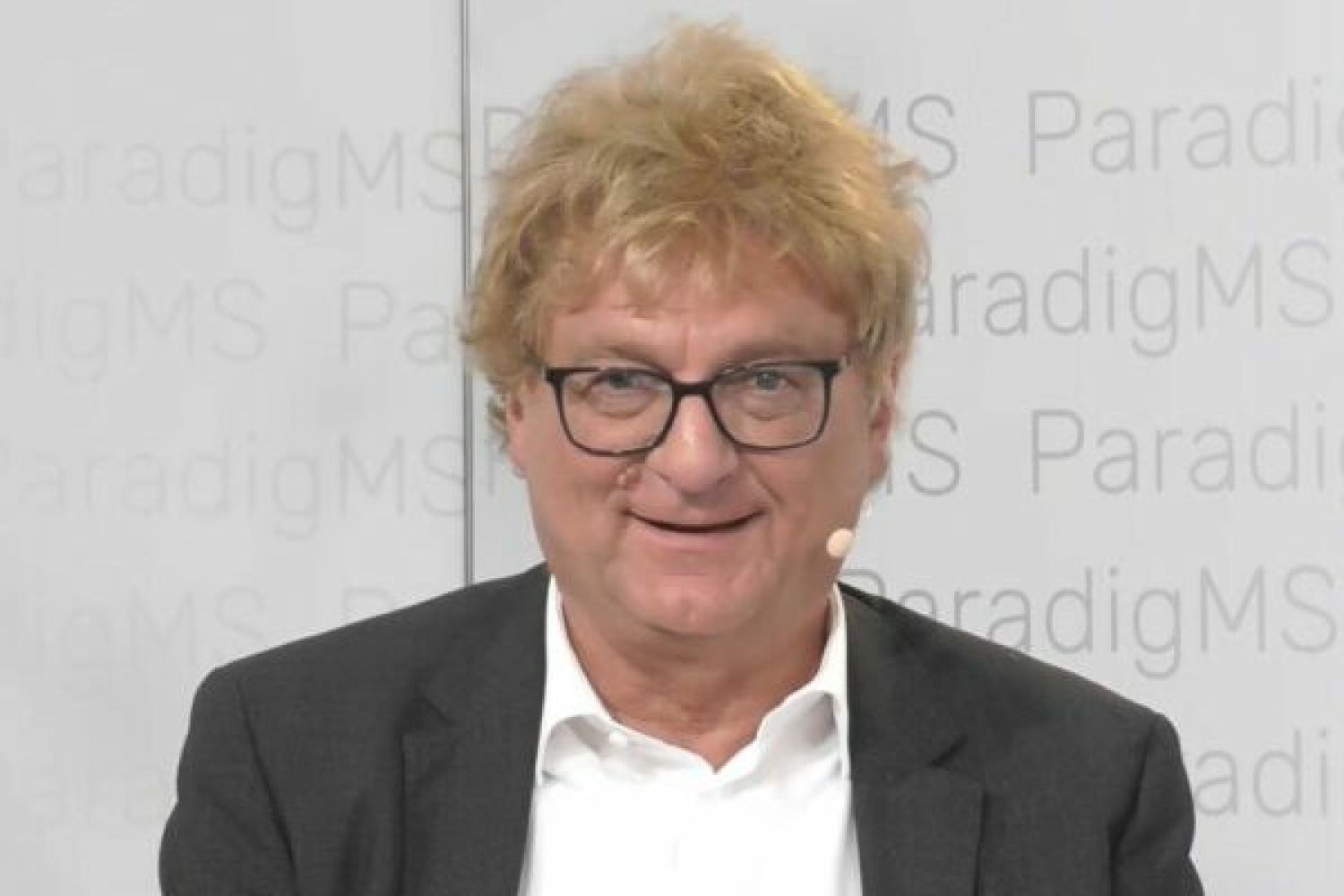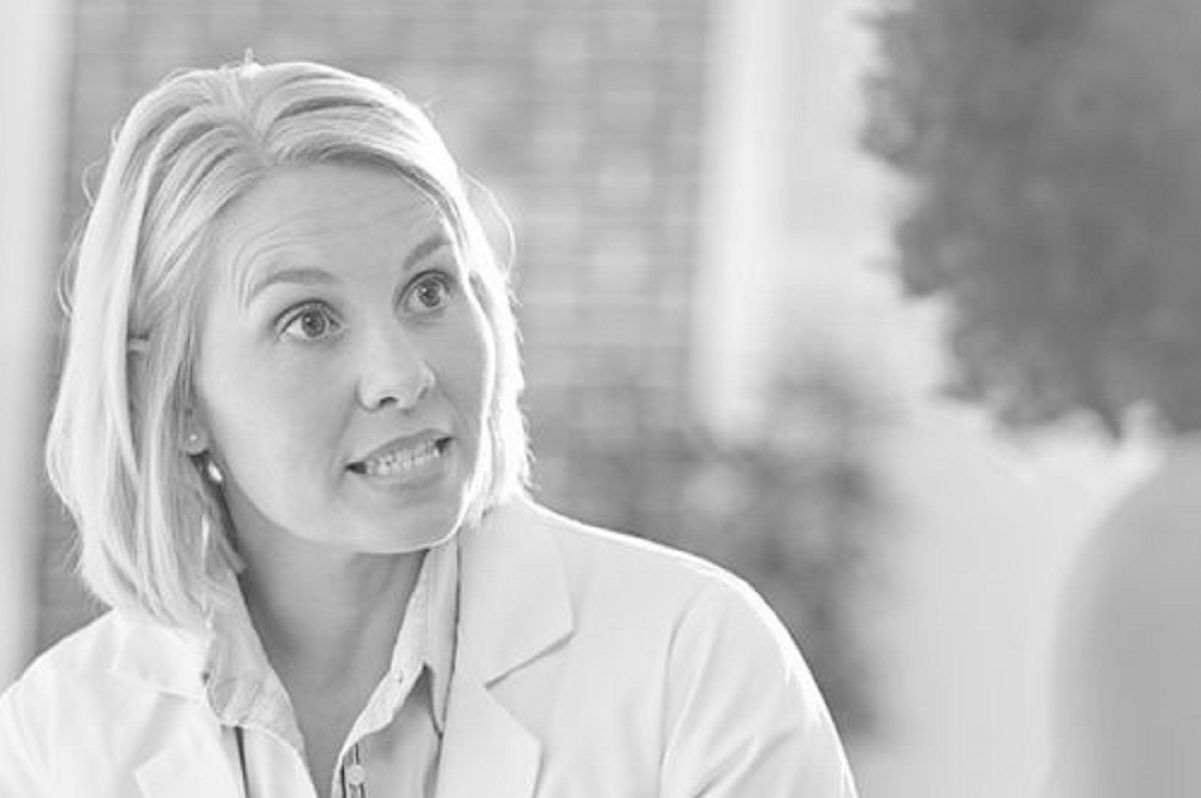COVID19 experiences and Virtual MS-care
24th June 2021, Sixth ParadigMS Symposium,The ParadigMS Foundation and the Belgian Study Group for Multiple Sclerosis (BSGMS) organised their annual symposium. Here you can review the full keynote on Innate Immunity and the Role of Microglia in MS.
ABSTRACT
COVID-19 and MS
The COVID-19 pandemic has obliged us to change the way things are done in many aspects of our lives. When it comes to multiple sclerosis (MS), neurologists have been forced to reinvent the way MS patients are managed, with fewer hospital visits and telemedicine now commonplace. Vaccinating patients against SARS-Cov-2 will provide some respite from the impact of this virus, but questions remain about procedures to follow when vaccinating MS patients who are receiving strong immunomodulatory or immunosuppressive drugs. Moreover, as disease-modifying therapies (DMTs) obviously have different mechanisms of action and dosing protocols, certain precautions concerning vaccination need to be kept in mind by the treating neurologist.
In this ParadigMS Foundation Keynote Address, Professor Hans-Peter Hartung will review key concepts concerning COVID-19 and the MS patient. He will look at the different DMTs within the context of vaccination, and share with you the latest research reports in this rapidly evolving field. This will be a very worthwhile presentation for the neurologist looking to expand his/her knowledge in this complex area of medicine.
Telemedicine in Multiple Sclerosis
‘Telemedicine’ infers the use of digital technologies to deliver healthcare services to patients at a distance. While telemedicine was previously considered an interesting concept to save on time and resources, its importance was quickly seen with the COVID-19 pandemic, where the medical community was obliged to find ways to improve the quality and efficiency of healthcare service provision while minimising the risk of disease transmission.
In this keynote address, Dr Hans-Peter Hartung will cover all the important aspects of telemedicine for the multiple sclerosis (MS) patient. By looking back on the history of telemedicine, he projects us forward to its potential role in the care of the MS patient, what the challenges are and how they can be overcome.
If you are interested in learning more about telemedicine and how to get the most out of these new technologies, then this is a must-attend event at the ParadigMS Symposium.
HANS-PETER HARTUNG
Professor Hartung received his undergraduate training at the Universities of Düsseldorf, Glasgow, Oxford and London. After graduation magna cum laude as MD in 1980 he served an immunology fellowship at Johannes-Gutenberg-University of Mainz. He started his career in neurology at the University of Düsseldorf, where he became assistant profess or in 1987. He was appointed professor and head of the MS clinicalresearch group and Vice Chair of the Department of Neurology at Julius-Maximilians-University of Würzburg in 1990 and moved in 1997 to Graz, Austria, to become chairman of the University Department of Neurology. In 2001 he was of fered a chair in MS research by the University of Glasgow and the MRC. He was chairman of the Department of Neurology, Heinrich-Heine-University Düsseldorf from 2001-2020, director of the Center for Neurology and Neuropsychiatry from 2012 – 2020 and director of the Department of Conservative Medicine from 2012 – 2019 .
He is currently Professor of Neurology at Heinrich-Heine-University Düsseldorf, Honorary Professor, Brain and Mind Center, University of Sydney, Visiting Professor at Medical University Vienna and Palacky University Olomouc.
Professor Hartung ’s clinical and translational research interests are in the field of basic and clinical neuroimmunology and in particular multiplescleros is and immune neuropathies , development of new immunological, neuroprotective and neuralrepair promoting strategies. He has authored or co-authored more than 950 articles in peer-reviewed journals, one hundred book chapters and edited nine books. He is a Highly Cited Researcher 2017, 2018, 2020 (Web of Science, Clarivate) .
He has been involved as member of the Steering Committee in numerous international multi-centre therapeutic phase 2 and 3 trials in Multiple Sclerosis, Guilla in Barré Syndrome and CIDP.
He was President of ECTRIMS and has served / serves amongst others on the executive boards of the European Charcot Foundation (treasurer and Vice President) , the European Neurological Society, the International Society of Neuroimmunology, Peripheral Nerve Society, INC (Inflammatory Neuropathy Cause and Treatment Consortium),WHO Working Group on Multiple Sclerosis, GBS CIDP Foundation International , the Medica l Advisory Board of the International (MS IF) and the German MS Society (Vice Chair ) and Chair of German MS Society State of North Rhine Westphalia and the US NMS Society and ECTR IMS clinical trials committee. He is member of the executive board of the International Multiple Sclerosis Cognition Society (IMSCOGS).
He is/ w as also member of the Editorial Board of a number of international journals including Annals of Neurology, CNS Drugs, Neurotherapeutics, Current Opinion in Neurology, European Neurology ( As sociate Editor) , Journal of Clinical Medicine, Journal of Neuroimmunology, Journal of Neuroinflammation (Associate Editor), Journal of Neurology, Journal of Neurology Neurosurgery Psychiatry, Nature Reviews of Neurology, Neurorehabilitation and Neural Repair (Associate Editor), Frontiers Immunology, Frontiers Neurology/ Immu-nology (Chief Special ty Editor Multiple Scleros is and Neuroimmunology), Muscle Nerve, Therapeutic Advances in Neurological Disorders, Vaccines and others.
Professor Hartung is a Fellow of the American Academy of Neurology, Fellow and general assembly member of the European Academy of Neurology, has been chair/member of the management group of the EAN scientific panels on general neurology and multiple sclerosis; Corresponding Fellow of the American Neurological Association, the American Heart Association (Stroke Council), Honorary Member of the All Russian Neurological Society, Honorary Member of ECTRIMS, Honorary Member of the French Neurological Society, Honorary Member of the Polish Neurological Society, Member of the Association of British Neurologists and a Fellow of the Royal College of Physicians (London) .





